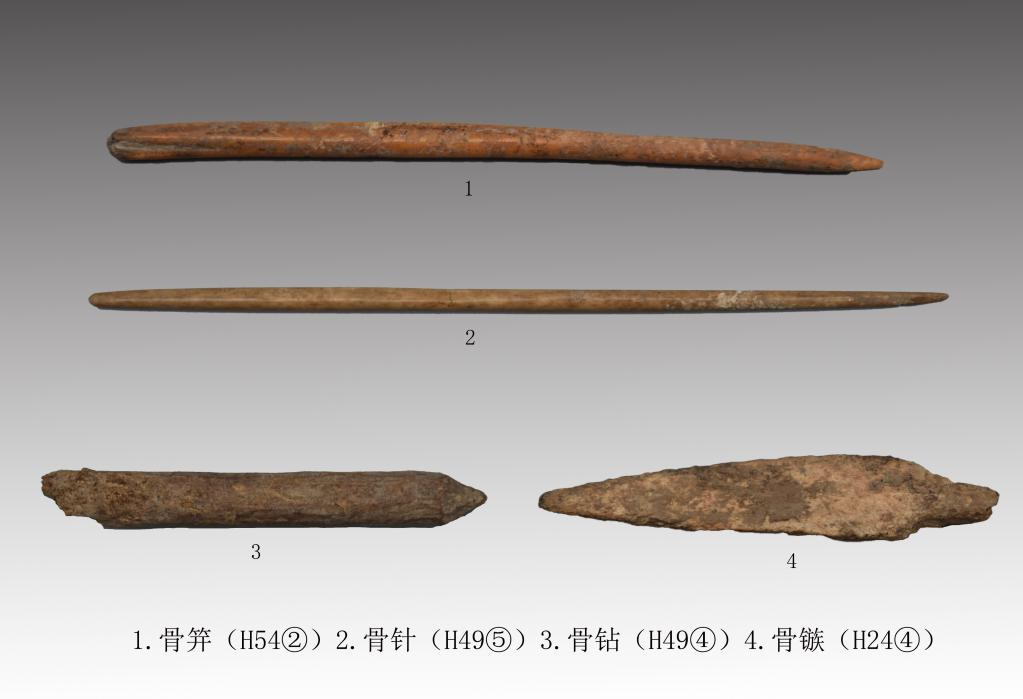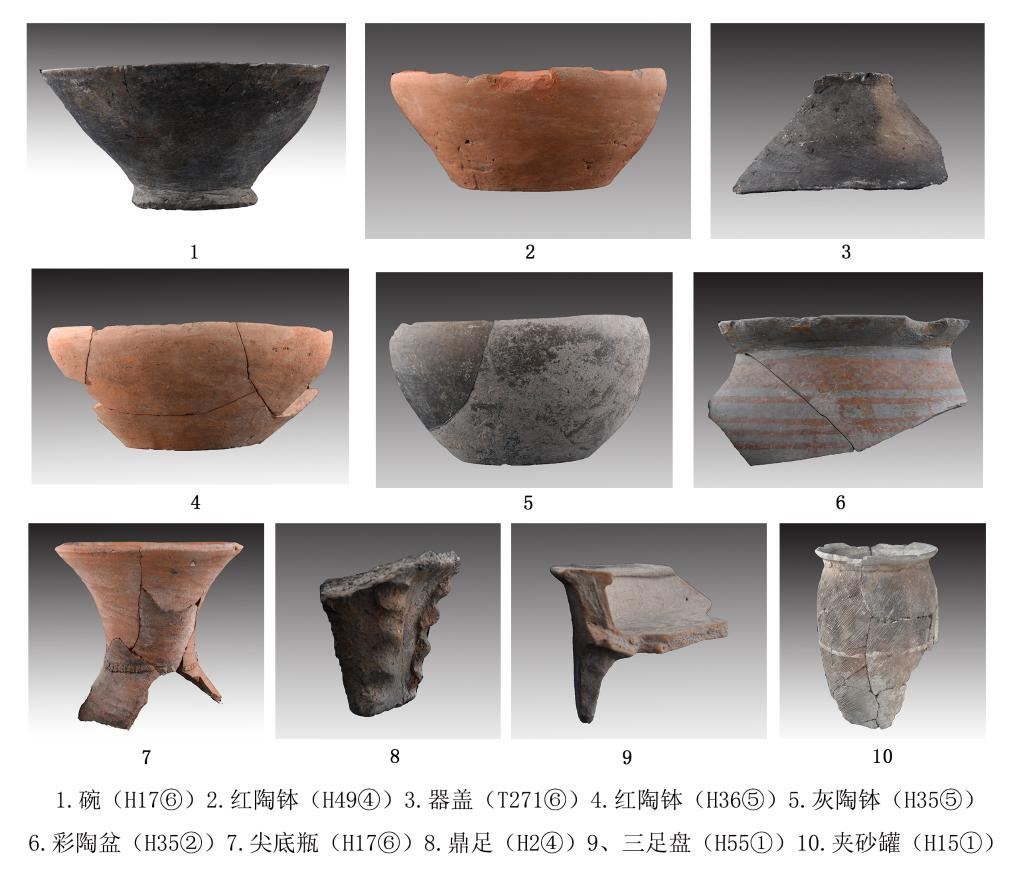
This undated photo provided by the Shanxi provincial institute of archaeology shows bone tools unearthed from the Yuancun relics site dating back to the late period of the Yangshao Culture some 5,000 to 7,000 years ago at Yuancun Village of Xiaxian County in Yuncheng City, north China's Shanxi Province. (Xinhua)
TAIYUAN, March 8 (Xinhua) -- Archaeologists have excavated significant remains dating back to the late period of the Yangshao Culture in north China's Shanxi Province.
A total of 58 ash pits, four housing sites, and three pottery kilns were unearthed at a relic site in Yuancun Village, Xiaxian County, Yuncheng City, said Wu Yangyang with the provincial institute of archaeology.
The Yangshao Culture, dating back 5,000 to 7,000 years, was a Neolithic culture that originated along the middle reaches of the Yellow River.
Starting in July 2022, an area covering 1,300 square meters has been excavated from the ancient settlement site in Yuancun Village, Wu added.
A large number of potteries, bone tools, jade and stoneware, and animal bones, were also found at the relic sites.
The discovery of long cylindrical jars, which are believed to store salt, provided crucial clues to the exploitation of the salt resource in the origin and early development process of human civilization. ■

This undated photo provided by the Shanxi provincial institute of archaeology shows pottery articles unearthed from the Yuancun relics site dating back to the late period of the Yangshao Culture some 5,000 to 7,000 years ago at Yuancun Village of Xiaxian County in Yuncheng City, north China's Shanxi Province. (Xinhua)



